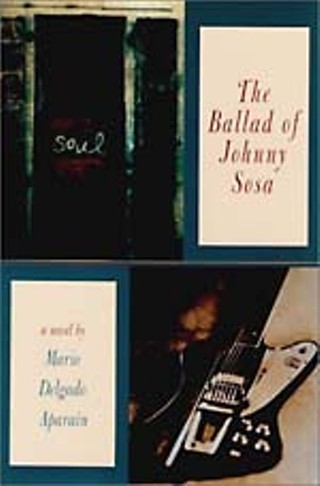The Ballad of Johnny Sosa
Mario Delgado Aparain
Reviewed by Jeff Tonn, Fri., March 25, 2005

The Ballad of Johnny Sosa
by Mario Delgado Aparain
Overlook, 128 pp., $12.95 (paper)
On June 27, 1973, Uruguay's military successfully launched a bloodless coup. Civil liberties were curtailed, and people started to disappear. This troubled period in the country's history provides the setting for Mario Delgado Aparain's short, powerful novel. Throughout this finely wrought story, Aparain withholds detail and instead draws his characters and settings with strong, simple imagery. Aparain mobilizes this descriptive economy into a striking parable about freedom and beauty. The Ballad of Johnny Sosa takes place in Mosquitos, a Uruguayan backwater described as "the last hidden corner on earth." Johnny Sosa, a toothless black musician, plays guitar and enchants the local rabble at a Brazilian-run brothel called the Chanteclere. A steady diet of American movies fuels his dreams of becoming a legendary blues singer, but the chips are not stacked in his favor. One morning, as Johnny is peering through a chink in the wall of his adobe hut, he notices a mysterious line of trucks parked under a row of eucalyptus trees. The Uruguayan army has encircled Mosquitos and placed it under military rule. Johnny, somewhat oblivious to the changes in local politics, continues crooning at the Chanteclere until his girlfriend urges him to study singing with maestro Di Giorgio, an unsavory Italian who sympathizes with the army. If Johnny gives up singing in the brothel and dedicates himself to bolero, Col. Valerio promises to sponsor his participation in a national singing competition. At first, Johnny accepts this devil's pact, but then his neighbor, Nacho Sanchez, and his wife disappear, leaving behind a wailing gaggle of orphans. The army has gouged out the soul of this poor but once lively town, and Johnny fears that eventually they will do the same to his talents and possibly his life. Aparain has unsurprisingly already been compared to Marquez, but this rich parable shares as much with Steinbeck's The Pearl as it does with Marquez's work. Both read like a folk legend, both portray music as the yearning soul's most intimate expression, and both describe the struggle of an unsophisticated peasant-type against powerful societal forces.










